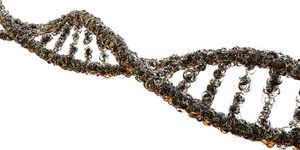Rapid Test Uses Bacteriophages to ID Urinary Tract Infection Pathogens
Cystitis and urinary tract infections can be a recurrent problem for many people. The pathogenic bacteria that can cause these bladder infections are also becoming increasingly resistant to antibiotics, and clinicians are often left looking for new ways to treat patients with persistent problems, or trying one antibiotic after another in an effort to find one that's effective. With typical methods, it can take days or weeks to identify the bacterium that's to blame for these infections.
Scientists have now created a rapid test that uses viruses called bacteriophages, which only infect bacterial cells, to diagnose the issue and potentially destroy the bacterial pathogen at the same time. This was made possible with a genetic modification that made the bacteriophages better at combating bacteria.
Bacteriophages are specific; each will only infect a certain strain of bacteria. In this study, the researchers took advantage of that feature, identifying bacteriophages that each infected three common microbes that cause urinary tract infections: Enterococci, Escherichia coli, and Klebsiella. These phages were then altered so they would generate light when they recognized and infected their host bacterium.
In under four hours, this test was able to quickly identify pathogenic bacteria in urine samples. While this study was only a proof-of-concept, it could become very useful in the diagnosis and timely prescription of an effective remedy. It can also cut down on the use of antibiotics that are not needed, because they would be ineffective.
The signal strength produced by the assay can also provide a clue to clinicians about which patients are more likely to respond well to bacteriophage therapy, since it also acts as an illustration of how well the phages can infect the bacteria. A stronger signal shows a higher likelihood of efficacy.
Although phages were once considered as a medicine against bacterial infections, they became unnecessary with the development of good antibiotics. As those drugs start to fade, bacteriophages are gaining a lot more interest again.
However, phages don't always want to destroy their host bacterium, so changes had to made. The genetic modification used in this study enabled the phages to generate bacteria-killing molecules called bacteriocins.
While many trials investigating phages are underway around the world, a lot more work will be needed before they are commonly used in the clinic, noted study co-author Matthew Dunne. One issue is that phages can continue to evolve, and regulations would have to take this into account.
A clinical trial investigating phage therapy is now planned at ETH Zurich.
Sources: ETH Zurich, Du et al Nature Communications 2023, Melle et al Nature Communications 2023









